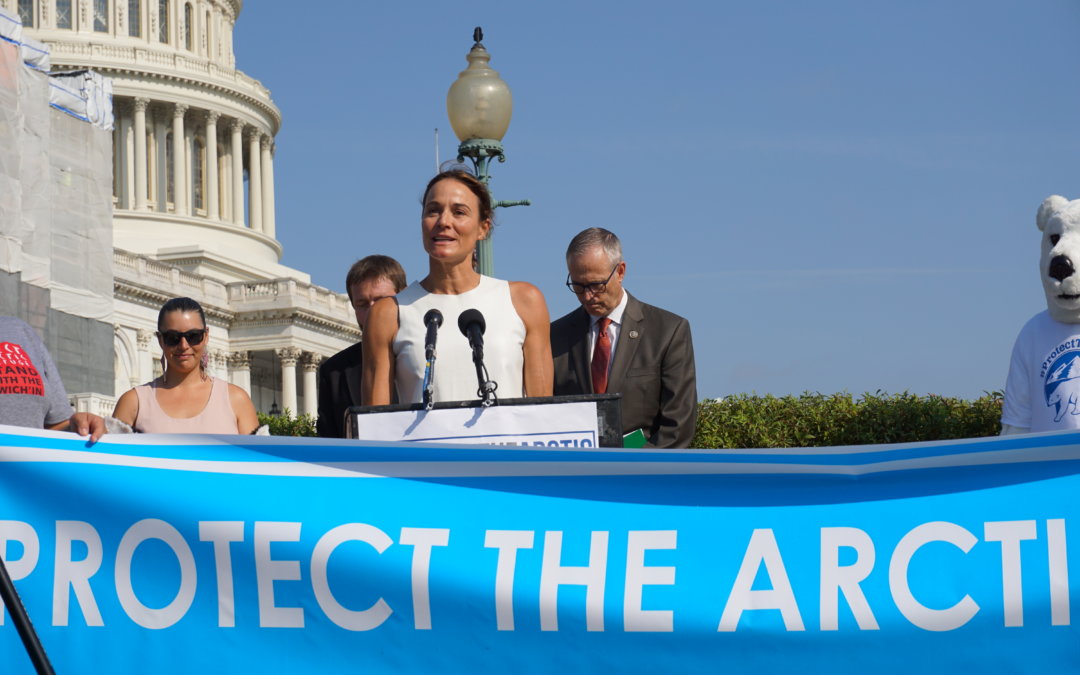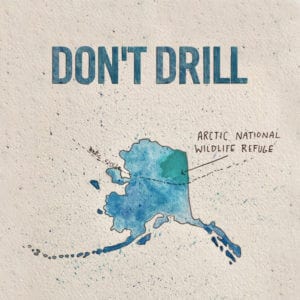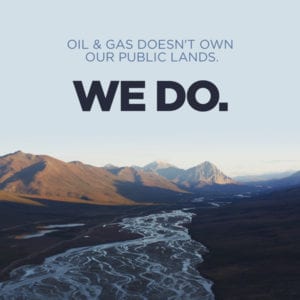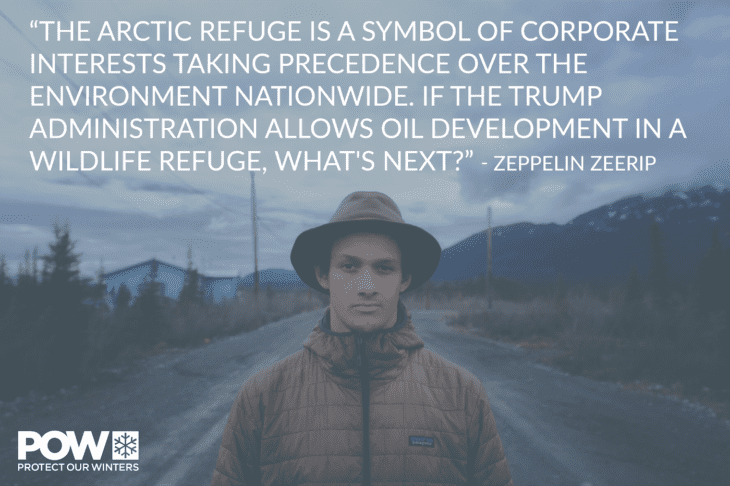
Protect the Arctic Refuge
How Did We Get Here:
In 2017, GOP lawmakers introduced the Tax Cuts and Jobs Act, sneaking in a small provision that mandated opening Area 1002 (a 1.5 million acre section of the Coastal Plain within the Arctic Refuge) to oil and gas development. It passed along party lines by an ultra-thin margin: 51-48.
Had it been presented as its own bill, it would have required at least 60 votes to move forward, making it unlikely to pass.

Why Are We Talking About This Now:
A little while ago, representatives Jared Huffman (D-Calif.), Alan Lowenthal (D-Calif.) and Brian Fitzpatrick (R-Pa.) recently co-signed a bipartisan bill, along with support from 97 other representatives, that would repeal that section of the 2017 GOP tax-cut law that opened the refuge for drilling in the first place.
That bill, called the Arctic Cultural and Coastal Plain Protection Act, states that “oil and gas activities are not compatible with the protection of this national treasure.” And in September 2019, it PASSED. Now a new bill has been introduced to the Senate that we’re working to pass.
Will you write to your lawmakers?

Why is POW Getting Involved:
Opening the Arctic Refuge to oil and gas development would not only irreversibly destroy the largest national wildlife refuge in the country––and deeply impact the outdoor enthusiasts who seek adventure and solitude there––but would also add significantly to the climate crisis at a time in which it is imperative to curb our emissions and adopt clean energy.
“Drilling in the Arctic is a pristine example that we’re going down the wrong path…It’s not only about the fact that we’re potentially irreversibly decimating a fragile and unique public land but that we’re continuing to extract oil to support our lifestyle when we have other options to put our energy toward.” -Kit DesLauriers, Professional ski mountaineer and POW Alliance member
The IPCC says we have 11 years to mitigate the worst impacts of the climate crisis. Opening the Arctic Refuge to oil and gas development would not only further us from this incredibly time-sensitive benchmark but set a precedent that removes public lands from the people and places them in the hands of private industry.
The Arctic Refuge is a place of adventure, solitude and consists of a wilderness that simply doesn’t exist anywhere else in the world. As outdoor enthusiasts, it’s important that we protect where we play.
“The oil industry argues technology is great so their impact is small. But in Prudhoe bay, just 100 miles away from the Arctic Wildlife Refuge, the environment has been devastated. The north slope experiences an average of 504 oil spills a year, totaling more than 1.9 million gallons of toxic substances between 1996 and 2004 (according to the Alaska Department of Environmental Conservation). The air pollution is worse than in Washington D.C. They are constantly fined for ignoring environmental regulations. The list goes on. Even if you trusted the oil companies when they say it will be different in the Refuge it doesn’t solve the effects of extraction on climate change in a place where average temperatures have already exceeded three degrees. Ninety-five percent of the Arctic is already open to oil and gas. Can we keep just five percent off-limits? ” – Tommy Caldwell, POW Alliance member & professional climber

WHAT WE’RE DOING:
In May 2019, we headed to Washington D.C. for our Arctic Fly-In alongside partner organization The Alaska Wilderness League. We brought leaders from the outdoor community to talk with our lawmakers about the importance of voting yes on the Arctic Cultural and Coastal Plain Protection Act.
In September 2019 our sister organization, the POW Action Fund headed back to D.C. to continue to urge lawmakers to protect our public lands, and the bill PASSED the House while the POW Action Fund team was on Capitol Hill.
Now the Senate has a chance to take the next step and pass Arctic Refuge Protection Act (Senate Bill 2462) to not only halt drilling in the Arctic National Wildlife Refuge but also designate wilderness to keep drilling out for decades to come.

